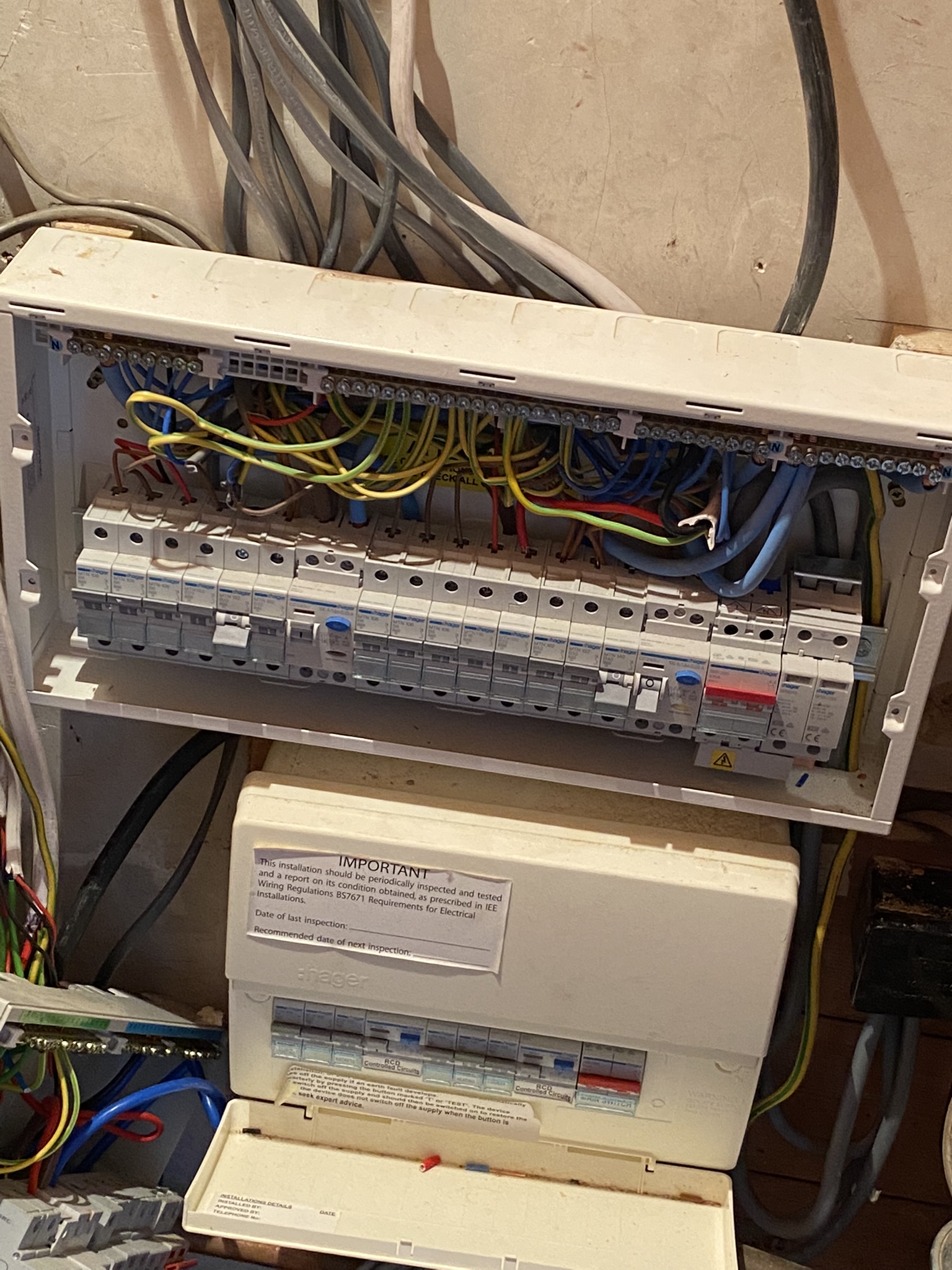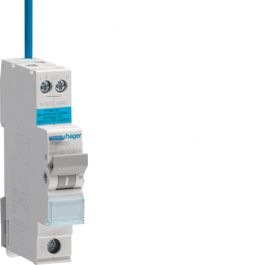Hi,
I’d appreciate views on the fuse board.

 ibb.co
ibb.co
It’s been completely rewired and I’m unhappy with the quality.
I’ve messaged him about it and described the board as a complete mess, and poor workmanship ship. For entry for the 25mm cables and 16mm tails he used the knock out but didn’t bother using the plastic cable holder - which is a couple of quid.
Also with the cables coming in through the back, there is no plastic or anything so the metal of the board could rub against the metal of the board.
his reply is below
a. - there is a reason why cables shouldn't be perfectly arrange in the fuse box because it could create electromagnetic field resulting in humming sound in the fuse box- you would probably think that's ridiculous ! But it's a fact!
Quite frankly I’m shocked, would you be happy with the work, paying over 4k? And supplying the board all second fix items etc? So basically 5k?
He has also created 5 additional lighting circuits downstairs, I live in a three bed terraced house.
1) for 6 down lights in a 2.5m x 2m room.
2) just the ground hallway light.
3) the lounge dinner, two lights and two wall lights.
4) a porch light and floodlight.
5) under stairs light simply 2 lights.
His reply is that it is is better… but then it’s all on a dual rcd so it doesn’t really help in my opinion.
We agreed the whole of downstairs on a circuit except the hallway on a separate one. (He said that was best practice.
I’ve attached photos and the pieces that I believe should go there. One is too big.
I’d appreciate views on the fuse board.

B15507-C3-D860-4-B7-C-B670-7-C9332043-AB4 hosted at ImgBB
Image B15507-C3-D860-4-B7-C-B670-7-C9332043-AB4 hosted in ImgBB
It’s been completely rewired and I’m unhappy with the quality.
I’ve messaged him about it and described the board as a complete mess, and poor workmanship ship. For entry for the 25mm cables and 16mm tails he used the knock out but didn’t bother using the plastic cable holder - which is a couple of quid.
Also with the cables coming in through the back, there is no plastic or anything so the metal of the board could rub against the metal of the board.
his reply is below
a. - there is a reason why cables shouldn't be perfectly arrange in the fuse box because it could create electromagnetic field resulting in humming sound in the fuse box- you would probably think that's ridiculous ! But it's a fact!
Quite frankly I’m shocked, would you be happy with the work, paying over 4k? And supplying the board all second fix items etc? So basically 5k?
He has also created 5 additional lighting circuits downstairs, I live in a three bed terraced house.
1) for 6 down lights in a 2.5m x 2m room.
2) just the ground hallway light.
3) the lounge dinner, two lights and two wall lights.
4) a porch light and floodlight.
5) under stairs light simply 2 lights.
His reply is that it is is better… but then it’s all on a dual rcd so it doesn’t really help in my opinion.
We agreed the whole of downstairs on a circuit except the hallway on a separate one. (He said that was best practice.
I’ve attached photos and the pieces that I believe should go there. One is too big.













